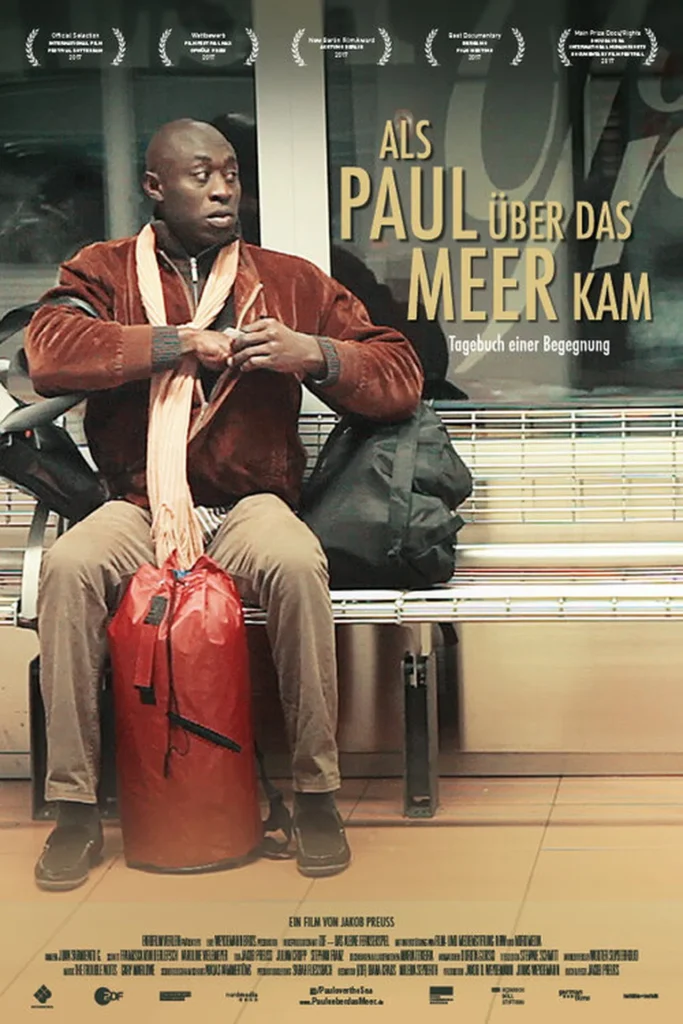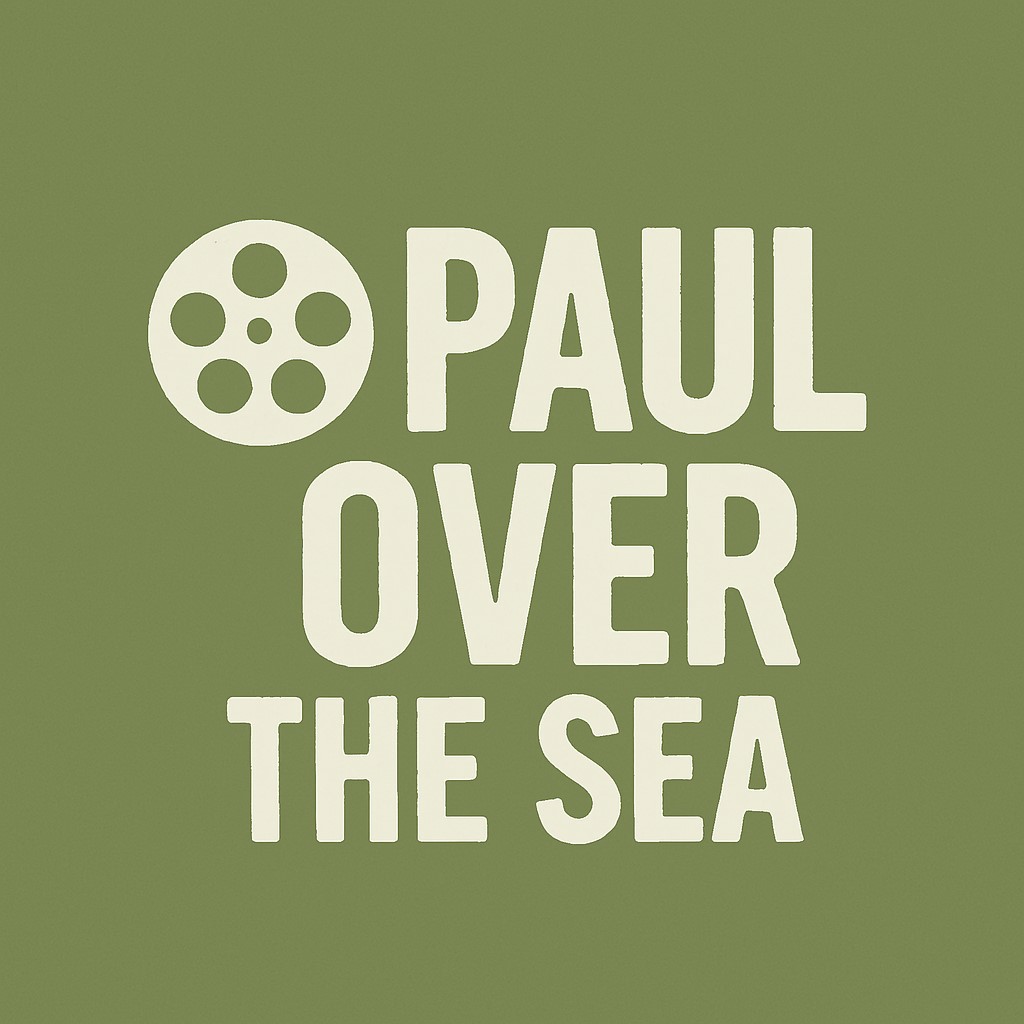
Director: Jakob Preuss
Genre: Documentary
Runtime: 97 minutes
Language: French, German, English
IMDb Rating: 7.3/10
Plot: A Journey from Cameroon to Europe
When Paul Came Over the Sea chronicles the arduous journey of Paul Nkamani, a migrant from Cameroon, as he traverses the Sahara Desert to reach the Moroccan coast. There, he resides in a forest near Melilla, a Spanish enclave, awaiting an opportunity to cross into Europe. It is during this period that Paul encounters Jakob Preuss, a German filmmaker documenting Europe’s border dynamics. Following a perilous 50-hour sea voyage on an inflatable boat—during which half of his fellow passengers perish—Paul arrives in Spain. Subsequently, he decides to continue his journey to Germany, the former colonial power in Cameroon, in pursuit of a better life. Jakob faces a moral dilemma: to remain an observer or to actively assist Paul in his quest.
When Paul Came Over the Sea is a profoundly human story about borders, empathy, and moral responsibility. Through the lens of Jakob Preuss, it captures the extraordinary resilience of Paul Nkamani, whose determination to survive and start anew transforms abstract debates about migration into deeply personal truths. The film’s raw realism and emotional honesty make it a powerful fit for Goojara movies, where socially conscious documentaries find their voice. It explores not just the physical journey across deserts and oceans, but the emotional crossing between filmmaker and subject, stranger and friend. When Paul Came Over the Sea reminds us that every statistic about migration carries a heartbeat, a name, and a dream.
Visual Style: Intimate and Immersive Storytelling
Jakob Preuss employs a cinéma vérité approach, capturing Paul’s experiences with raw authenticity. The use of handheld cameras and minimal intervention allows viewers to intimately witness the challenges and moments of hope that define Paul’s journey. This method fosters a deep connection between the audience and the subject, emphasizing the personal narratives often overshadowed in broader migration discussions.
Themes: Migration, Friendship, and Ethical Boundaries
The documentary delves into the complexities of migration, highlighting the personal stories behind global statistics. It explores themes of friendship and the ethical boundaries between filmmaker and subject, as Jakob grapples with his role in Paul’s life. The film prompts reflection on the human aspects of migration and the responsibilities of those who document such journeys.
Reception: Critical Acclaim and Thoughtful Discourse
When Paul Came Over the Sea has been praised for its poignant storytelling and the unique relationship between Paul and Jakob. Critics have noted the film’s ability to humanize the migrant experience and provoke discussions about the ethical responsibilities of documentary filmmakers. The documentary has been featured in various film festivals and has received accolades for its impactful narrative.
The Critic’s Verdict
Jakob Preuss’s When Paul Came Over the Sea offers a deeply personal perspective on the migrant experience, effectively bridging the gap between observer and participant. The film’s intimate portrayal of Paul’s journey challenges viewers to confront the human stories behind migration headlines.
Rating: 8/10
A compelling and thought-provoking documentary that sheds light on the personal dimensions of migration.
Pair With
Fire at Sea (2016) for another poignant exploration of the migrant crisis, or The Other Side of Hope (2017) for a narrative take on refugee experiences in Europe.
Cultural Footprint
By focusing on an individual’s migration journey, When Paul Came Over the Sea contributes to the broader discourse on global migration, emphasizing the personal narratives that are often lost in policy debates. The film serves as a testament to the power of documentary cinema in fostering empathy and understanding across cultural and political divides.
Additional
In addition to its exploration of migration and human connection, When Paul Came Over the Sea delves into the ethical complexities inherent in documentary filmmaking. Jakob Preuss, initially an observer, becomes entwined in Paul’s journey, prompting introspection about the filmmaker’s role and the boundaries between documentation and intervention. This self-reflective narrative challenges audiences to consider the moral obligations of storytellers when confronted with human suffering.
Furthermore, the documentary sheds light on the bureaucratic hurdles faced by migrants upon reaching Europe. Paul’s experiences in detention centers and his navigation through asylum procedures underscore the systemic challenges that often exacerbate the trauma of displacement. By highlighting these institutional obstacles, the film emphasizes the need for policy reforms that prioritize human dignity and streamline integration processes for asylum seekers.
